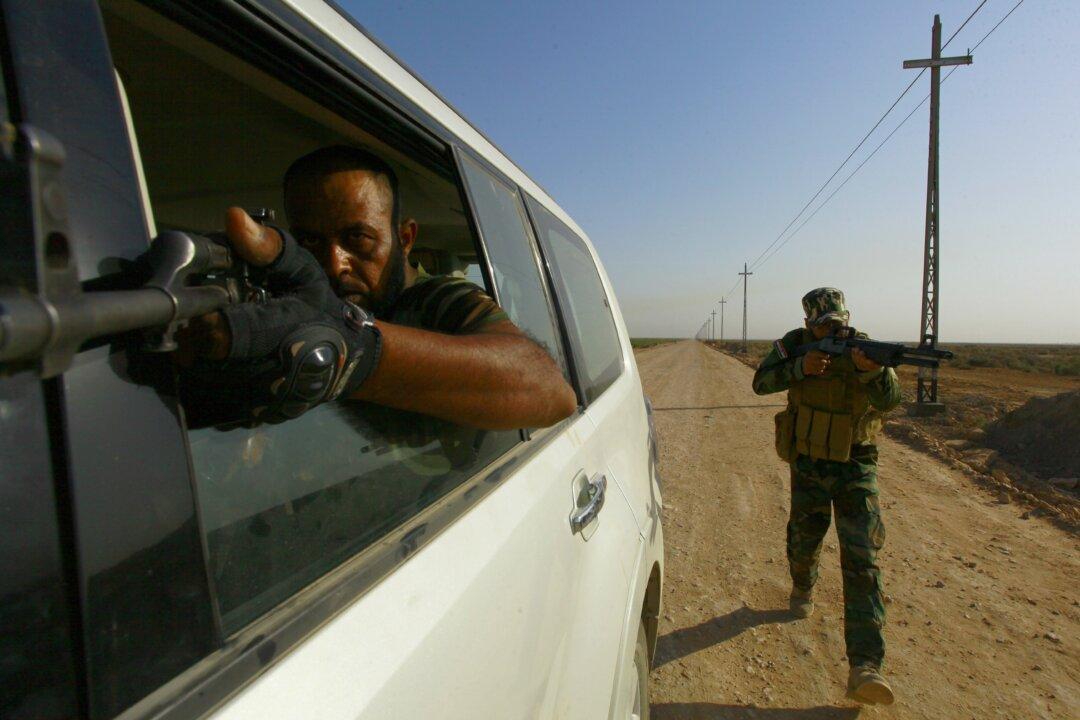When you hear “online predator,” you probably conjure an image of a sexual predator – perhaps a middle-aged man targeting oblivious kids through various social media channels. But if we want to effectively counter ISIS' efforts here – and overseas – we may need to broaden that definition.
“We are pretty sensitive to the issue of online predators when it comes to sexual predators, but not necessarily when it comes to violent extremists,” says New America International Security Fellow Rabia Chaudry. “ISIS especially has been very successful in recruiting using online tools, so we have to increase awareness and find out what our kids are doing while online.”
I sat down recently with Chaudry, a longtime advocate in the American Muslim community and the President and founder of the Safe Nation Collaborative, to ask her a series of questions about how successful methods of Countering Violent Extremism (CVE) have been so far – and how we should refine our strategies in the future.
Below is an edited and condensed version of our conversation.
How big of a problem are ISIS' efforts to recruit and radicalize Americans?
ISIS poses a unique challenge. They are better funded, better organized and are presenting a different framework than we saw from Al Qaeda and other associated groups, which is that they are trying to create something. They’re not saying “we want to disrupt Western governments.” They’re saying “forget all that, we’re creating a model community and encouraging people to come with their families to live there.” A kid might say, “man I’m not going to blow up a local school but I can live as a Muslim without feeling demonized or marginalized in the caliphate.” It gives these kids an alternative they maybe wouldn’t find anywhere else. [ISIS is] also very social media savvy.
How should we measure the success of CVE efforts?
That’s a complicated question because CVE as a field can look like a lot of different things. On an international level a CVE program could be something like a literacy program, or it could be a jobs skills training program. So how do you then measure that? That’s really something we are still trying to figure out. We’re not quite up to speed on monitoring and evaluation when it comes to CVE yet. Unfortunately.
How successful are current efforts to counter violent extremism?
It’s really too early to even tell. On a domestic level – and most of my work is domestic – we have been doing quite well. More American Muslim communities are comfortable working with the government and with law enforcement. About one-third of would be terrorist acts by Muslim perps were reported by Muslims themselves to law enforcement. So Muslim Americans have been very forthcoming. They want to keep their communities safe. Muslims in this country are very well integrated. And our security and intelligence folks have done a really great job since 9/11; we have not had any major attacks.
Can you tell us a bit about your organization, the Safe Nation Collaborative?
Safe Nation Collaborative is a CVE Law Enforcement training firm. The idea there is that one of the most important relationships we can encourage right now is between local law enforcement and local Muslim communities because they share the same community. Their kids go to school together. Community members should be comfortable enough with local law enforcement that if there is an incident and they don’t know how to handle it, they feel safe picking up the phone and calling the local police chief or liaison. Right now that’s missing in a lot of jurisdictions. So this training provides law enforcement with the information and tools to engage in a respectful and informed way with Muslim communities.
Some efforts at community engagement have been criticized as being a cover for surveillance. What can be done to keep that perception from overtaking efforts to prevent extremist violence?
That is the prevailing perception – certainly in American Muslim communities – and it is true. We know that the FBI has used its outreach office to conduct surveillance. I have personally represented people who have been asked to become informants in the community – not in response to an imminent threat but just to fish for information. What is really difficult about the situation is that it completely undermines the CVE framework of engaging and partnering with local communities. On the one hand the administration says “we want to partner with you” and then on the other hand you have one or two agencies that undermine it by treating the community like suspects.
How can communities best be prepared to confront individuals who present a threat?
The civil liberties difficulties and national security issues that are intertwined with CVE, have discouraged some communities from even accepting information on how to deal with threats. What complicates this further is that when a community suspects that somebody local is having issues, the community will often as quickly as possible put distance between itself and the individual because it doesn’t know legally to what extent it can intervene. Often, it’s much easier to just kick them out of the mosque, out of the community. Then you have somebody who is out there who could on their own do something really terrible. Communities are very unprepared. We have asked policymakers and law enforcement repeatedly to provide communities with some guidelines that explain the legal framework in which you are safe to engage this person, and at what point should you contact law enforcement. We still don’t have it.
It’s crucial that we continue to ask what kind of trainings and what kind of information communities are getting. We are far enough along since this framework was first authored in 2011 that we should have a more systematic way of getting trainings to law enforcement and of being much more receptive to the concerns of Muslim communities. Otherwise CVE is going to fail.
What lessons can be drawn from CVE efforts to prevent violence beyond just jihadist extremist violence?
We cannot take violent or extremist activity and ascribe the responsibility of preventing it to a particular group. This is a real complication for Muslims. More Muslims are victims of violent extremists than anybody else. It’s our kids these people are trying to recruit and if they do recruit them and something happens it is our community that suffers the consequences. Treat it like any other crime prevention, like you would with other communities, and I think Muslims would be more comfortable with it. I know it’s a challenge because of the religious undertones that some perps have, but if the government reinforces those undertones then you’re going to push communities away.
This article was republished from The Weekly Wonk, New America’s digital magazine. Read the original on the New America website.
*Image of a man working on computers via Shutterstock





